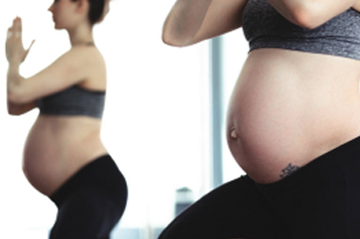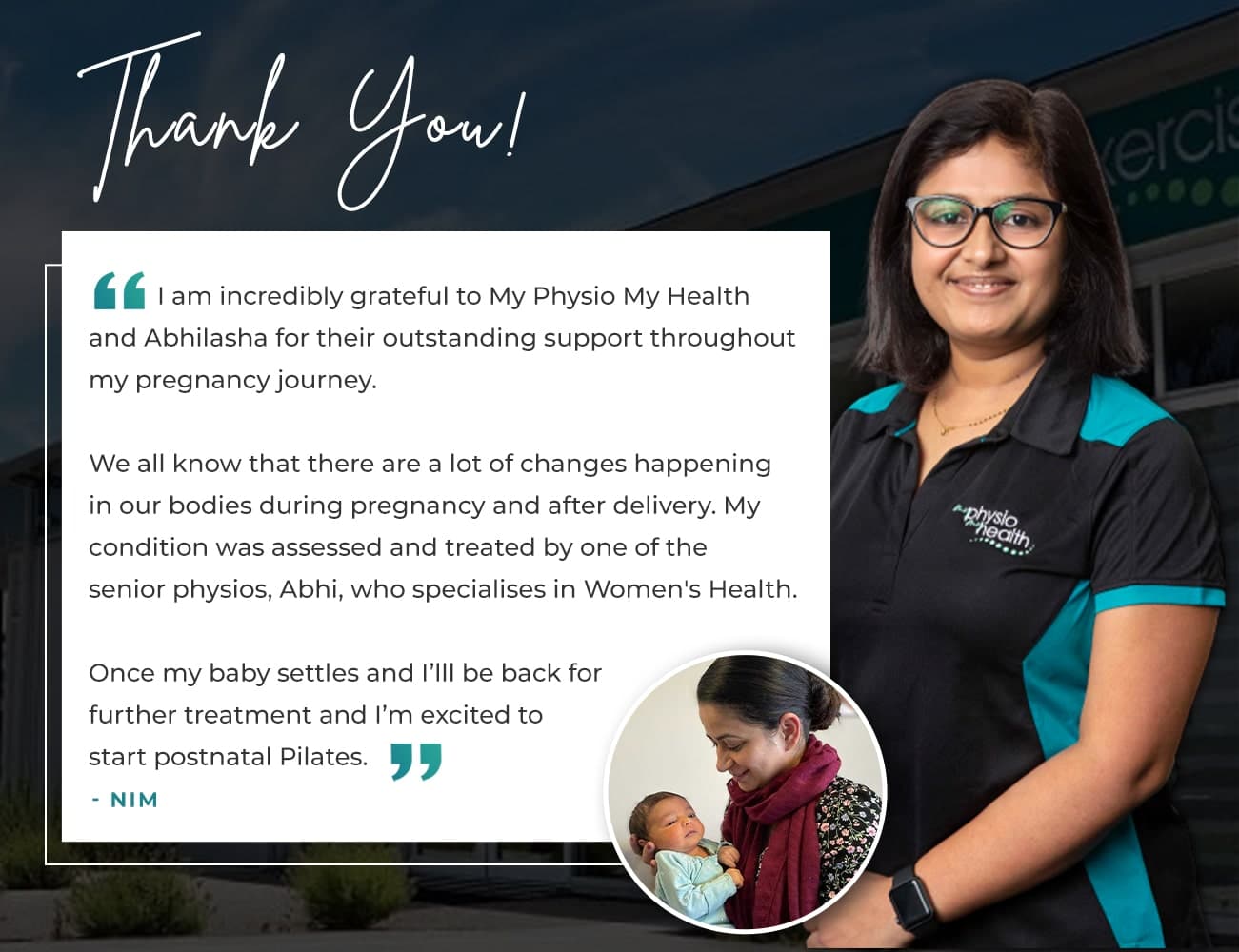
Pre and Post Natal Physiotherapy
During pregnancy your body undergoes many physical changes; to your muscles, ligaments and joints. Our team of Women's Health physios will help you manage these changes, providing advice and treatment during and after your pregnancy.
The most common symptoms and conditions experienced during the antepartum period include sciatica and lower back pains, SIJ (Sacroiliac Joint) pain, carpal tunnel syndrome, incontinence, and pelvic floor weakness. After birth, or post partum, many women also experience diastasis recti (aka superficial abdominal muscles are separated), abdominal pains, sexual pain and/or sexual dysfunction syndrome, as well as bladder and uterine prolapse.
Support throughout your Pregnancy
My Physio My Health provide you with a multitude of approaches and techniques to help you enjoy your pregnancy with the least amount of discomfort. Those include stretching/mobility/flexibility exercise programs, core strengthening and stability exercises, pelvic floor reinforcing and rehabilitation exercises, hands-on therapy, and soft-tissue techniques.
In addition, we focus on educating you about support braces, optimal movement and posture patterns, along with post-natal corrective exercises – the latter being crucial for your body’s rehabilitation after labour. To find out more about pregnancy physio and our pre and post natal classes please contact us.

Frequently Asked Questions about Pregnancy
Regular exercise (at the right intensity) is recommended during pregnancy to help reduce back pain, improve and maintain muscle tone, reduce leg cramping and swelling, as well as improve sleeping patterns. See one of our physiotherapists to get the proper exercises prescribed for you during your pregnancy.
The earlier the better! Pelvic floor muscle exercises are essential before and after pregnancy.
It is not recommended to do abdominal curls and crunches during pregnancy. Rather, we recommend abdominal bracing exercises and core strengthening.
This commonly happens as your body changes during pregnancy and a gap occurs between your abdominal muscles. Although this is unavoidable, you can try to reduce the width of this gap by using correct posture, ceasing abdominal curls and crunches and learning how to do pregnancy abdominal bracing correctly. See your physiotherapist for further advice.
We recommend you avoid lying on your back to exercise after 16 weeks into your pregnancy or as otherwise advised by your doctor or midwife.
We don’t like setting specific restrictions to exercise as every individual has different physical capabilities and goals. Rather, our physiotherapists can educate and give you advice on exercises that cater to your individual needs based on your current fitness levels. Some examples we might suggest avoiding are heavy weight lifting, high impact and prolonged bouncing, contact sports, etc.
No exercise should be painful! Please see your physiotherapist if you are experiencing pain with any of the physical activity or exercise you are doing.
The early post natal period is about rest, recovery and bonding with your new baby. You can commence pelvic floor exercises and postnatal abdominal muscle bracing during this time. It is generally recommended that you wait until your six weeks postnatal check before increasing your intensity level.
My Physio My Health
Trust our team of physiotherapists to help you recover faster and improve your quality of life.

